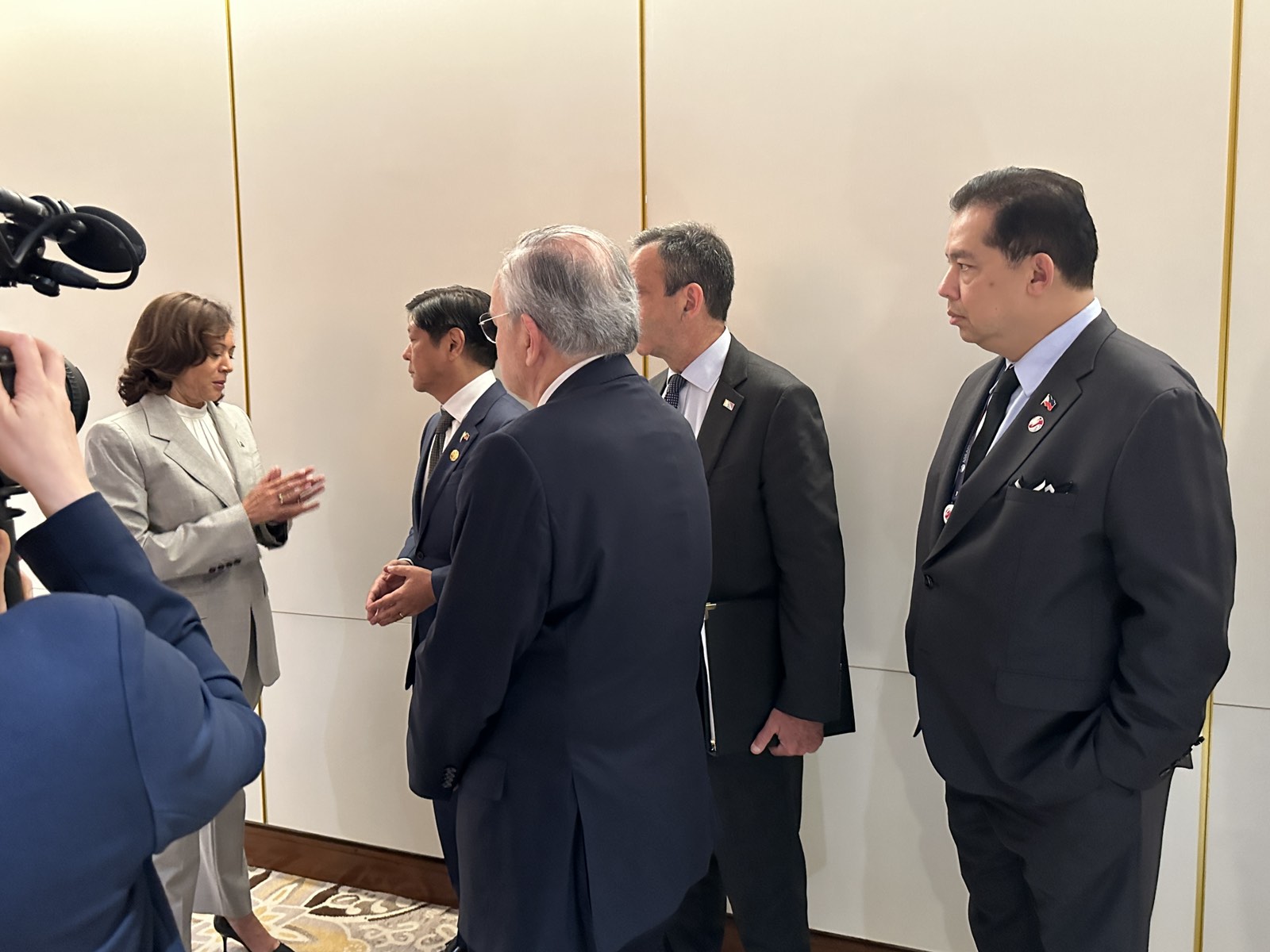​President Ferdinand "Bongbong" Marcos Jr. and US Vice President Kamala Harris discussed developments in the South China Sea as they met Wednesday on the sidelines of the Association of Southeast Asian Nations (ASEAN) Summit and Related Summits in Jakarta.
According to a readout provided by the White House, the recent meeting pushed both officials to review "opportunities to enhance bilateral maritime cooperation, including alongside likeminded partners."
As the two leaders "discussed the maritime security environment in the South China Sea," White House said, Harris "reaffirmed the United States' ironclad alliance commitment to the Philippines, and highlighted the role the US-Philippines alliance plays in ensuring a free, open and prosperous Indo-Pacific."

Meetings between Marcos and Harris are not new. The Philippine chief executive already met the latter during his state visit to the US in February, as well as when Harris flew to Manila earlier, in November last year.
During the meetings, the US' "ironclad commitment" to the Philippines had been repeatedly expressed, especially in military alliance in case of an armed attack against Philippine assets in the South China Sea amid China's aggression.
Marcos and Harris also welcomed the identification of four Enhanced Defense Cooperation Agreement (EDCA) additional sites pursuant to the -Philippines Enhanced Defense Cooperation Agreement—a move that was heavily criticized by Beijing.
White House said the new sites would "drive US investment to local communities across the Philippines and improve our shared ability to rapidly deliver humanitarian assistance and disaster relief."
"President Marcos and the Vice President also discussed opportunities to bolster bilateral economic cooperation and enhance economic resilience," the readout stated.
Marcos and Harris' meeting built on the previous meetings that the Philippine leader already had with her and US President Joe Biden.
Both sides welcomed the strength of the bilateral relationship as they also discussed opportunities to deepen commercial and economic cooperation, as well as their shared commitment to upholding the rules-based international order, White House said.